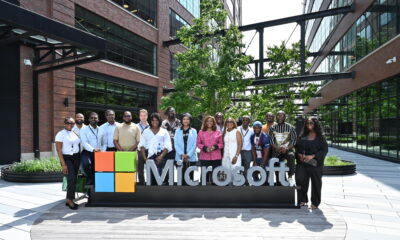News
Bill Gates wants Governments to Tax Robots who are taking Human Jobs
The world’s richest man and techno-optimist, Bill Gates believes robots who are taking human jobs need to pay their share in taxes. He said that governments should tax companies’ use of robots as a way to at least temporarily slow the spread of automation and to fund other types of employment.
In an interview with Quartz‘ Editor-in-Chief, Kevin Delaney, the Microsoft co-founder, one of the leading players in artificial-intelligence technology, said:
If robots are going to take over human jobs, that means fewer people will be working, which in turn means fewer people will be paying taxes.
And that’s a problem, since taxes fund things that are important, like schools and roads and fire departments.
Right now, the human worker who does, say, $50,000 worth of work in a factory, that income is taxed and you get income tax, Social Security tax, all those things.
Gates said that once automation takes over activities that humans used to do, that should free up time for people to “do a better job of reaching out to the elderly, having smaller class sizes, helping kids with special needs.” All of which, Gates says, require human levels of empathy and currently suffer from a shortage of people who are able to fill those roles.
“But you can’t just give up that income tax, because that’s part of how you’ve been funding that level of human workers,” Gates said.
The tax money could come from the savings companies get from not having to pay and support human workers, or it could come from a tax on the robot companies themselves, said Gates.
According to a McKinsey report from January, fifty percent of jobs done by humans today are vulnerable to replacement by robots. That could amount to a loss of about $15 trillion in wages worldwide and about $2.7 trillion in the United States. But the report further mentions that this might not happen until 2055, plus or minus 20 years.
“People should be figuring it out,” Gates said. “It is really bad if people overall have more fear about what innovation is going to do than they have enthusiasm. That means they won’t shape it for the positive things it can do.”





















